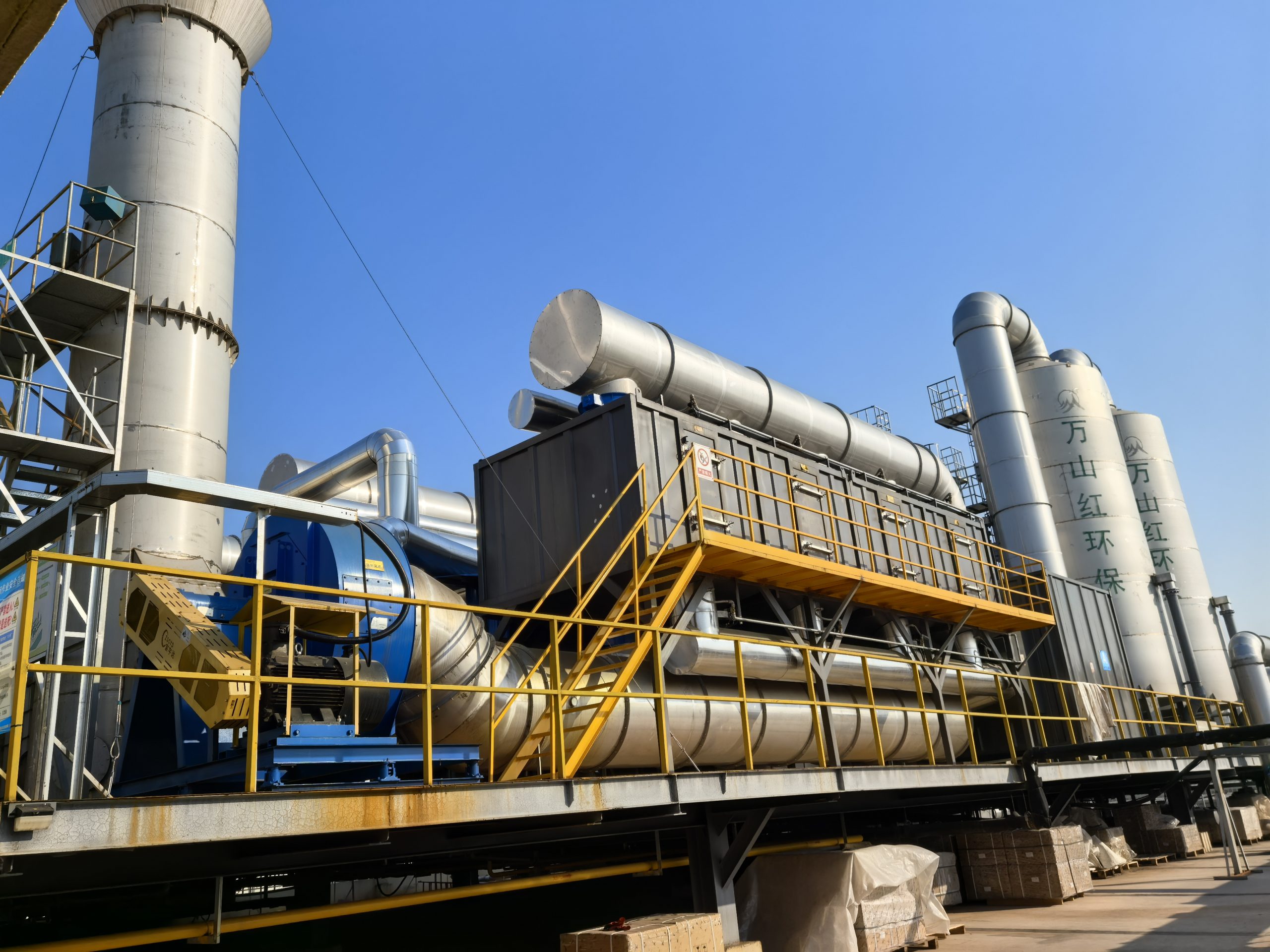In the past few years, the value of unpolluted air has become a key focus in environmental discussions, especially in industrial environments where pollutants pose a considerable risk to both human health and the ecosystem. As sectors continue to evolve, the necessity for efficient emission reduction systems has become crucial. Innovations in this field are not only boosting effectiveness but also making certain that harmful pollutants are thoroughly mitigated, creating a more sustainable future.
One promising area of innovation is in RTO waste gas treatment equipment, designed to significantly cut down on volatile organic compounds and other harmful substances. Coupled with advancements in VOC waste gas treatment technologies, these systems are revolutionizing the way industries manage emissions. By harnessing state-of-the-art technology, companies are not only complying with tough standards but are also helping with the global effort for improved air quality.
Comprehending RTO Technology
RTO (Regenerative Thermal Oxidizer) technology represents a broadly utilized approach for effectively treating waste gases that include volatile organic compounds. This innovative system functions by capturing and destroying harmful contaminants, thereby reducing negative effects on the environment. The center of RTO technology is found in its dual-chamber design, which makes use of heat exchange to maximize efficiency. The incoming waste gas is first heated by the warm exhaust gas from prior runs, which assists reduce the energy needed for combustion.
The RTO process begins when waste gas is drawn into the reaction chamber, where it is subjected to extreme temperatures, usually around 760 degrees Celsius. At these temperatures, the VOCs are oxidized, leading in carbon dioxide and water vapor as by-products. This elevated temperature combustion process not just efficiently eliminates the noxious compounds but additionally ensures that the processed air complies with strict environmental regulations. By incorporating energy recovery, RTO systems can reach thermal efficiencies of greater than 90 %, substantially reducing operational costs.
In addition to its efficacy in treating VOCs, RTO technology is extremely adaptable and can be customized to fulfill the unique needs of different industries, such as manufacturing and chemical manufacturing. Its ability to accommodate variations in waste gas amounts and mixtures makes it a versatile choice for various applications. As industries continue to search for ways to comply with environmental standards and reduce their carbon footprints, RTO waste gas treatment equipment stands out as a dependable and groundbreaking method for cleaner air.
Benefits of VOC Treatment Solutions

One of the primary gains of VOC treatment systems is the significant reduction in harmful pollutants. Volatile Organic Compounds, or VOCs, can pose serious health risks to both individuals and the environment. By implementing effective treatment approaches, such as RTO and VOC waste gas treatment equipment, industries can reduce their carbon footprint and comply with increasingly stringent eco-friendly regulations. This not only shields public health but also enhances the company's standing as a responsible corporate citizen.
Another advantage of these solutions is the potential for energy reclamation. Innovative VOC treatment technologies often incorporate systems that seize and utilize waste heat generated during the treatment process. This energy can be repurposed for other operational needs, leading to overall financial savings and improved efficiency. Industries can gain financially while reducing their reliance on external energy sources, contributing to a more sustainable operation overall.
Lastly, the implementation of VOC treatment solutions fosters innovation and encourages the adoption of cleaner technologies. As businesses seek to enhance their waste gas management systems, they often explore new and improved methods that can lead to higher operational efficiency and lower environmental impact. This push for innovation not only helps the companies involved but also promotes advancements in the sector, paving the way for the development of even more effective waste gas treatment systems in the future.
Future Innovations in Waste Gas Management
As sectors continue to evolve, the requirement for improved and sustainable waste gas treatment solutions is becoming progressively paramount. One of the most major trends is the adoption of machine intelligence and machine learning into RTO waste gas treatment equipment. These cutting-edge technologies enable immediate tracking and enhancement of treatment processes, increasing the performance of emission removal and cutting functional costs. By forecasting emissions patterns and adjusting parameters accordingly, organizations can significantly enhance their compliance with ecological regulations while minimizing their ecological imprint.
https://www.wshwastegasequip.com/category/products/spraying-waste-gas-treatment/
Another important trend is the increasing focus on scalable and transportable waste gas treatment technologies. These methods provide versatility, allowing companies to respond swiftly to changing operational needs or governmental requirements. With VOC waste gas treatment equipment becoming more portable and transportable, organizations can deploy treatment systems in proximity to the point of emissions. This decentralization not only boosts efficiency but also enables more rapid responses to risky situations or surges in emissions, ultimately leading to improved air quality in nearby communities.
Lastly, the significance of closed-loop systems principles is progressively influencing waste gas management practices. Companies are exploring more sustainable materials and reclamation methods within their treatment equipment. Innovations that allow for the harvesting of valuable byproducts from waste gases are increasing in adoption, contributing to material efficiency and diminishing waste. As companies strive to achieve increased sustainability, the integration of green technologies and processes into waste gas treatment will shape the next generation landscape of ecological management.
